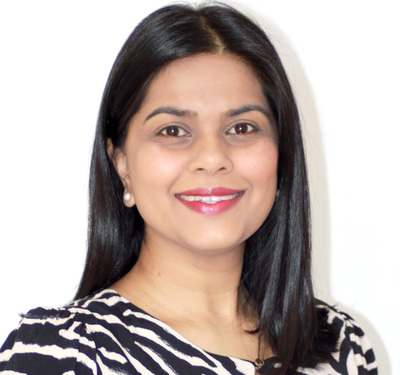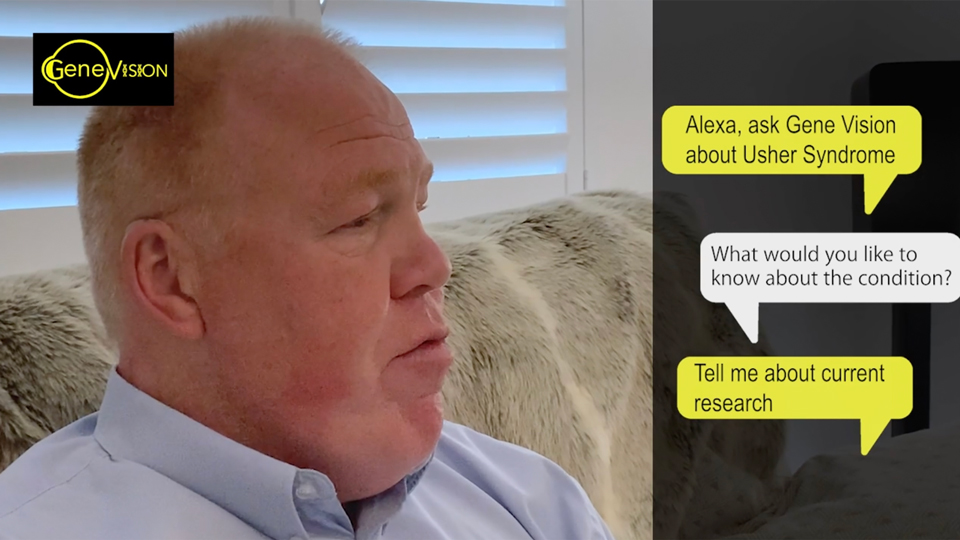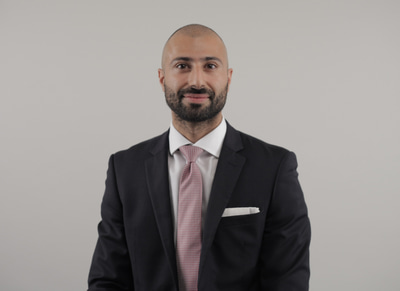- OT
- Science and vision
- Technology
- Gene Vision launches chatbot and Alexa service
Gene Vision launches chatbot and Alexa service
OT spoke to the team involved in the development of a new chatbot for Gene Vision, a website providing information on rare genetic eye diseases for patients and healthcare professionals

12 July 2021
Gene Vision, a website established to provide patients with information and resources on rare genetic eye diseases, has launched a chatbot and Alexa tool to provide greater accessibility of its services.
The Gene Vision website was launched in December 2020 to enable adults and children and their families, who receive a diagnosis of a rare genetic eye disease, to be able to access condition-specific information, as well as updates on current research and clinical trials.
As well as supporting patients, the site aims to act as a resource for eye care professionals and allied healthcare professionals in understanding their patients’ conditions.
The website has now launched a chatbot feature which will enable users to ask questions and access information directly through the tool. A video has been created to introduce the chatbot and its applications.
Website users access the chatbot through an assistant symbol or the menu bar, type in a question, to which the device will respond with a text reply. The tool can be changed to dark mode and the size of the text can be modified.
The chatbot uses artificial intelligence (AI) to understand natural language, meaning it becomes better at understanding questions with each interaction.
The Gene Vision team has also partnered with Amazon Alexa to enable patients to ‘Ask Alexa’ about their condition.
The chat bot in conjunction with Alexa is a step closer to making this information more accessible
The Gene Vision site was developed by Professor Mariya Moosajee, consultant ophthalmologist in genetic eye disease at Moorfields Eye Hospital and Great Ormond Street Hospital for Children, and Dr Alex Yeong, fifth-year ophthalmology specialist trainee at Royal Victoria Hospital in Belfast, Northern Ireland.
The development of the site was supported by Dr Peter Thomas, director of digital innovation at Moorfields Eye Hospital.

“This is really incredible as we are talking about rare genetic eye diseases that can affect anywhere between one in 3000–1,000,000 people,” Moosajee explained.
As well as enabling patients to register for updates on their specific condition, Moosajee said the website had also received, “Important queries that have come straight to myself which have resulted in the organisation of swift hospital appointments to access the appropriate genetic services.”
Discussing the introduction of the chatbot and Alexa functions, which were launched to align with Genomics Conversation Week (28 June–2 July), Moosajee said: “As we enter the era of genomic medicine, and as a specialist in genetic eye disease, we have a responsibility to raise awareness of genomics amongst health care professionals so they begin to feel more empowered to manage genetic patients themselves and undertake genetic testing with whole genome sequencing, that is now centrally funded by our NHS.
“In addition to this effort, we also need to educate and engage our patients. One way is to provide them with access to a reliable and trustworthy knowledge resource so they can learn more about their condition, the care pathway and any research/resources that are available to them.”
“The chat bot in conjunction with Alexa is a step closer to making this information more accessible,” she continued.

Behind the technology
Kishan Devraj, a locum optometrist in North West London and self-described “digital health enthusiast,” was behind the development of the chatbot technology.
Speaking to OT, Devraj explained that his involvement evolved from something that had begun as “a bit of a lockdown project.” Always interested in programming and building apps as a hobby he explained: “During lockdown, I branched out into artificial intelligence (AI), building chatbots and Alexa Skills.”

“When I showed them what was possible, they were really surprised,” Devraj shared, adding that tests with patients received positive feedback.
To build the chatbot, Devraj took all of the information from the website and linked it into the tool. Patients can ask questions about particular genetic eye conditions, the treatments, research and causes, and can also ask for lifestyle information related to topics like driving rules and travel concessions.
Describing the benefits of the Alexa service for patients, Devraj told OT: “Many of the people who use this website have visual impairments. For them to get access to information is quite hard. Alexa was perfect because users didn’t need to read anything, they could just talk to it and get the information that they need.”
The chatbot service is also convenient, Devraj said: “It’s a bit like Google, or when you go onto a website and there is just so much information – you would rather just ask the website to tell you what you are looking for.”
The optometrist suggests this is something that we could expect to see more in the future, particularly on informational websites: “I think the future is voice, and the future is AI.”
By improving the accessibility of the site, Devraj suggests this could also help patients to engage further with the information, and as the website is regularly updated, they will be able to access the latest information on current research and advancements.
I’ve always believed that we can do more; we’re optometrists but we could do anything
Illustrating this, he shared: “In the testing phase, there were so many things that patients with retinitis pigmentosa didn’t know was out there. By talking to this service, they found out a lot of information.”
Improving accessibility for all
The use of the chatbot will be evaluated to build on recommendations around the accessibility of website designs, Moosajee explained. In developing Gene Vision, the team ensured the site would be fully accessible to healthcare professionals, patients and the public, including those with hearing and sight impairment.
“We worked closely with patients, families, sight loss charities and professional deaf-blind digital accessibility consultants to ensure we had maximised the functionality, design and comprehension used for the content,” Moosajee told OT. “We published the findings of this consultation so that those working in ophthalmology and vision research could learn about the specific modifications that were implemented in order to help in the future design of other similar websites.”
With the introduction of the chatbot function, the Gene Vision team plan to build on this information, “and hopefully set a precedent for more ophthalmic related sites to consider the most effective and user-friendly methods to ensure maximum access and usage of web resources.”
Reflecting on the experience, Devraj told OT: “I’ve always believed that we can do more; we’re optometrists but we could do anything. We don’t just have to be in the test room, we can take our skills and we can do big things with them.
“Everybody’s got something that they’re good at, and they can take optometry and can do something good with it. I just want to encourage people that they should reach outside their comfort zone.”


Comments (0)
You must be logged in to join the discussion. Log in